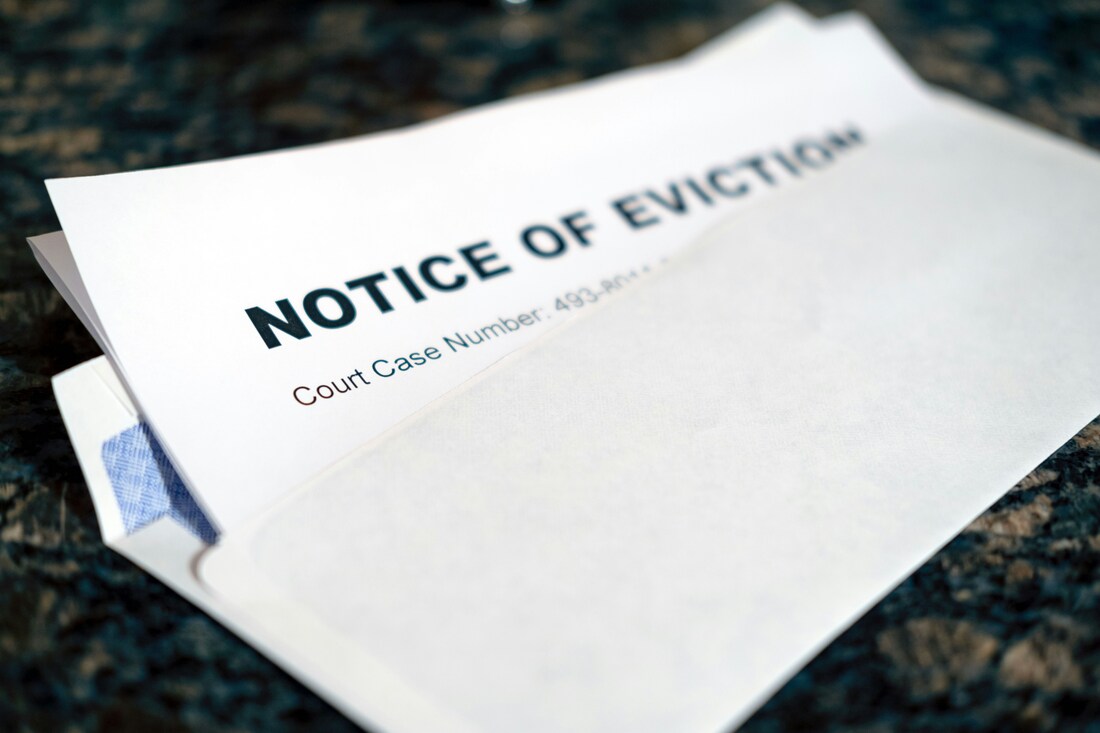|
The Denver Gazette on March 28 highlighted concerns over a bill aimed at limiting evictions without a substantial reason, emphasizing that its basis seems more anecdotal than analytical. This legislation restricts evictions to specific causes such as rent non-payment, plans to sell the property, lease violations, substantial property repairs, or property damage by the tenant. However, it introduces the possibility for tenants to legally challenge evictions, raising disputes over their validity. Recent legislative sessions in Colorado have aimed to bolster tenant protections in response to the escalating affordable housing crisis in Denver and statewide. House Bill 24-1098 seeks to clarify "just cause" for evictions, raising concerns that economic interventions by politicians often result in unintended consequences for those they intend to help. Critics argue that such regulations elevate operational costs for landlords, potentially leading to higher rental prices due to the bill's implications. Furthermore, the legal background of many state legislators is seen as a factor likely to encourage litigation, with tenants increasingly turning to lawsuits to avert eviction. The editorial also references Senator Nick Hinrichsen, D-Pueblo, who shared an anecdote about a 67-year-old constituent's alleged retaliatory eviction following complaints about inadequate heating, alongside other eviction scenarios involving personal disputes or political disagreements, though these instances lack substantial evidence and appear to be infrequent. With the introduction of House Bill 24-1098, tenants who have either fallen behind on rent for several months or have a history of property damage may now claim their eviction is retaliatory. This legislation allows for legal challenges to eviction causes, potentially halting the eviction process and enabling tenants to remain in their homes pending court decisions. This development is seen as undermining property owners' rights and could lead landlords to raise rents in an already expensive market. As the House and Senate prepare to reconcile different versions of the bill on April 2nd, constituents are encouraged to share their opinions with their representatives and senators, highlighting their stance on House Bill 24-1098 and the broader issues it raises concerning tenant rights and housing affordability. Full Bill can be reviewed by clicking here.
Jennifer Mussato is president at Denver-based First and Main RE powered by KW Commercial, a real estate group that specializes in land, acquisitions, dispositions, commercial leasing, and investment strategies.
0 Comments
A deed is a legal instrument, in writing, duly executed and delivered, whereby the owner of real property, otherwise referred to as the grantor, conveys to another, referred to as the grantee, some right, title, or interest in or to the subject of real estate.
GENERAL WARRANTY DEED In a general warranty deed, the grantor guarantees the title to the real property against any defects existing before the grantor acquired title as well as during the time of the grantor's ownership. A general warranty deed conveys both present and after-acquired interest of the grantor. The operative language in a general warranty deed is usually the expanded version, "grants, bargains, sells and conveys"; however only the phrase "sells and conveys" is required by statute. In addition, a general warranty deed will include the phrase "and warrants title to the same" that is short hand for the following covenants:
It is important to note that the above covenants of title, run not only to the benefit of grantee but to all persons down the chain of title from grantee, so that breach of covenants of warranty may be enforced not only by the direct grantee from grantor but also by grantee's successors and heirs. Also, liability of the grantor may be imposed against either the grantor and/or the grantor's heirs. SPECIAL WARRANTY DEED A special warranty deed differs from a general warranty deed in that where a general warranty deed guarantees title against interests predating the grantor's ownership of the property, a special warranty deed merely guarantees title only against defects arising during the time the grantor owned the real property. That is to say, a special warranty deed warrants title as against anyone whose interest has arisen from grantor, but not from others.. Like a general warranty deed a special warranty deed includes after-acquired title. The operative language in a general warranty deed is usually the expanded version, "grants, bargains, sells and conveys"; however only the phrase "sells and conveys" is required by statute. In addition, a special warranty deed will include the phrase "and warrant the title against all persons claiming under me," or an expanded phrase with the same meaning "and warrants title against all claiming by, through, or under me." Using a special warranty deed should be considered when the grantor is willing to warrant against any adverse interest or defect in title which the grantor, herself, created but not against interests of or defects occurring before the grantor was the owner. In essence this deed says, I, as grantor of this property will be responsible and liable for anything I did to the title of the property but not for what others may have done. QUITCLAIM DEED A quitclaim deed is one in which the grantor warrants nothing. This deed conveys whatever interest the grantor has in the property, if any at all. To be clear, a quitclaim deed does not even represent that the grantor has any interest, whatsoever. Unlike both a general warranty deed and a special warranty deed, a quitclaim deed does not convey any after-acquired title. A quitclaim deed uses the operative language "sells and quitclaims." Of note is the absence of the word "conveys' which is present in both a general warranty deed and special warranty deed. A quitclaim deed is generally used where the grantor may or may not have an interest in the property or where the grantor is unwilling to warrant title. Typical types of uses for a quitclaim deed can be to clear title from an interest otherwise affecting marketable title such as interest the grantor may possess through some prescriptive easement in adjacent property.  Multiple studies have confirmed the medicinal benefits of marijuana, but what about its impact on the health of the housing market? Does medical and recreational legalization lead to growth in home values or is the pot industry just blowing smoke? This past year, voters in California, Massachusetts, Maine, and Nevada all legalized recreational use while Florida, Arkansas, North Dakota, and Montana voted to legalize or expand medical use in those states. One thing is clear, pot entrepreneurs are contributing to real estate booms in commercial and residential markets in states that have legalized the drug for medical recreational use. Impact on Commercial Sales: Previously vacant warehouses and factories are now home to growers while long-abandoned strip malls have become the storefront for pot shops. The pot industry has created a huge demand for commercial operations. As a result, states like Colorado and Washington are seeing premium prices for building leases and purchases within the proper zoning. Buying real estate is an attractive asset to marijuana growers and retailers because it provides a safe haven for their profits that many banks are still reluctant to manage due to federal regulations and give them more freedom to create specialized spaces for their business. Landlords also notoriously price gouge marijuana tenants, so buying makes good business sense over renting. Successful owners of marijuana businesses quickly turn to real estate and become landlords themselves. In Colorado, Polk and Stone rents properties to marijuana businesses with the agreement that rent will increase only 3 percent a year. In an industry where rent can increase by 50 percent from year to year, this business model is enticing to marijuana entrepreneurs. Impact on residential sales: Colorado's state law allows for counties to determine if they and how they want to legalize and regulate the drug. Areas where it’s legal attract more homebuyers, including marijuana users as well as entrepreneurs and job seekers. As more growers and retailers open up shop in these municipalities, the demand for workers rise. The influx of new residents inevitably leads to more home sales and higher rents. There are also plenty of people moving to pot-friendly states without intent to work for the industry, but rather to enjoy the bud of its labor. Impact on home values: Realtor.com reports the four states with at least a year of experience with recreational marijuana sales showed a marked increase in home prices — well above the national median price. The data from Colorado provides some of the best insights on what happens to the housing market after recreational use is legalized because it has permitted its use the longest. Since the first shops started operations on January 1st, 2014, the median home sale price in the state has risen from $248,000 in the first half of 2014 to $298,000 in the first half of 2016 according to the realtor.com analysis. In jurisdictions where the drug can be purchased, the median sales price of homes in the second quarter of 2016 were a hit $305,200 while homes in areas where it is banned only went for $267,200. Of course, there are other industry sectors that have been experiencing rapid growth in Colorado, so it’s difficult to contribute the rise in home prices strictly to the rising business of pot, but it's an obvious leading contributor. Unfortunately, not every homeowner in states with legalized weed is getting a good deal. On the flip side, Colorado neighborhoods harboring grow houses lose value. The pungent odor the plant emits turns off home seekers. Concern for criminal activity: One of the greatest concerns of detractors of legalization is the claim it will encourage more crime and further reduce home values of those living near grower, manufacturers, and retailers. Looking to Colorado again, in Denver, the crime has grown by 44% as reported to the National Incident Based Reporting System since legalization. But police argue that the system potentially over counts crimes and prefer to cite the FBI's Uniform Crime Report which indicates only a 3.5% increase over the same time. It's important to note, however, the city began tracking marijuana-related crimes as well, which make up less than 1% of all offenses. Experts conclude that the rise in crime is tempered when taking population growth into account, and not directly tied to the sale or use of the drug. Dealing with real estate transactions: From a real estate professional perspective, a lingering question is how to deal with money that comes from an industry that is still federally prohibited under the Controlled Substance Act. There is a serious lack of banking services for commercial operations in the medical and recreational marijuana business. Although many title companies will help close on a cannabis deal, they will not facilitate the exchange of funds. That's because banks refuse to work even indirectly with marijuana business owners. As a result, title companies have formal policies against serving as escrow, especially when the land is designated for pot-related use, but will issue limited title insurance policies on the land that won't cover federal governmental actions such as civil and criminal forfeiture. As more states pass legalization, this will provide opportunities for agile and creative real estate brokers to provide much needed professional guidance for marijuana business owners. Written by Amanda Farrell, Proplogix |
Keller Williams Realty DTC, LLC
6300 S Syracuse Way, Suite 150
Greenwood Village, CO 80111
(303) 887-9893
6300 S Syracuse Way, Suite 150
Greenwood Village, CO 80111
(303) 887-9893
First and Main RE | brokered by Keller Williams DTC
Each office is independently owned and operated.
Each office is independently owned and operated.


 RSS Feed
RSS Feed